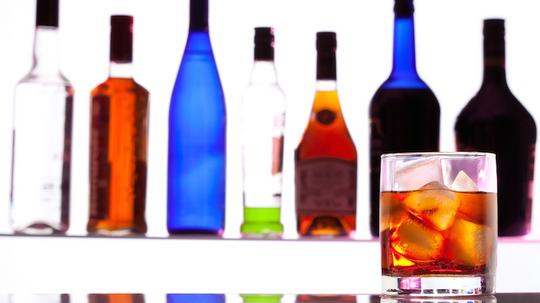
Amazon (AMZN) has pulled beer and wine from its AmazonFresh grocery delivery service, even as alcohol delivery startups are thriving. Although Amazon hasn't stated exactly why it decided to do so, regulatory issues seem like a likely culprit, much as they were when grocery delivery startup Instacart decided to end its own alcohol deliveries.
Washington, D.C. came up with regulations to make the delivery startups legal just over the summer, and the competition has grown fierce. Drizly, Klink, Minibar and Ultra are some of the more prominent startups involved, but there are others around the country. But they wouldn't be able to function if they weren't all very careful about following the new rules.
Amazon isn't the only grocery delivery service that has removed alcohol from its offerings. Instacart ended its beer and wine delivery services right around the time D.C. created its alcohol delivery regulation. When it comes to food and drink delivery, alcohol may be best left to the specialists.
"In general, the way that grocery delivery services are set up is not conducive to successful operation in the complex, heavily-regulated alcohol delivery space," said Jeffrey Nadel, CEO of alcohol delivery startup Klink in an email interview. "Trying to also deliver alcoholic beverages puts grocery delivery companies at risk of running afoul of the regulations in this space and compromising their core business."
Alcohol delivery startups make regulation compliance a priority if only because delivering beer, wine and liquor is the core of their business. They couldn't just cut it as not worth the effort. It makes planning expansion more complicated, but it doesn't mean it's an impediment.
"From the very beginning, we set out to build a business that was legally compliant and brought innovation to the alcohol industry without disruption," said Nick Rellas, CEO of Drizly, another alcohol delivery startup. "It's a model where everyone benefits. Before any launch in a new state, we make sure to approach the regulators to introduce ourselves, explain how our business works and get their blessing first."
The platform technology used by the startups also helps smooth things out since what they really do is connect liquor stores with customers, rather than trying to control the actual deliveries themselves the way Amazon and Instacart do. Taking that angle makes it easier for them to be compliant since the liquor stores already have their own compliance sorted out. But as long as the rules for food and alcohol delivery are so different, there's always going to be separation between ordering one or the other.
"What we're good at is getting beer, wine, and spirits to our customers in the most convenient, frictionless way possible," Nadel said. "In order to be successful and totally compliant in the alcohol-delivery space, the company really has to be structured from the ground up with that purpose in mind."




